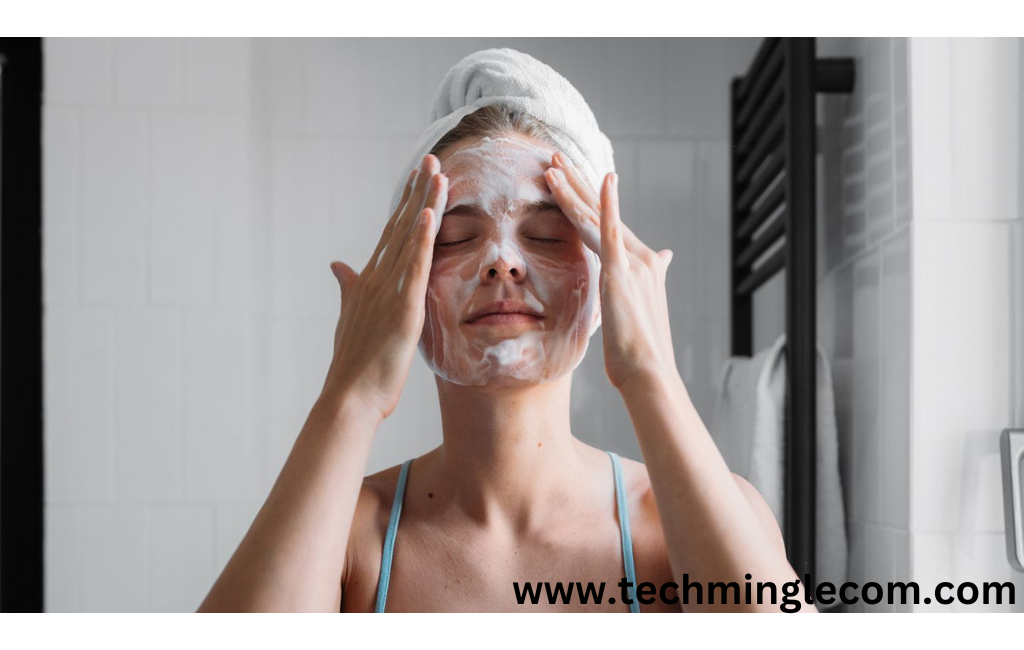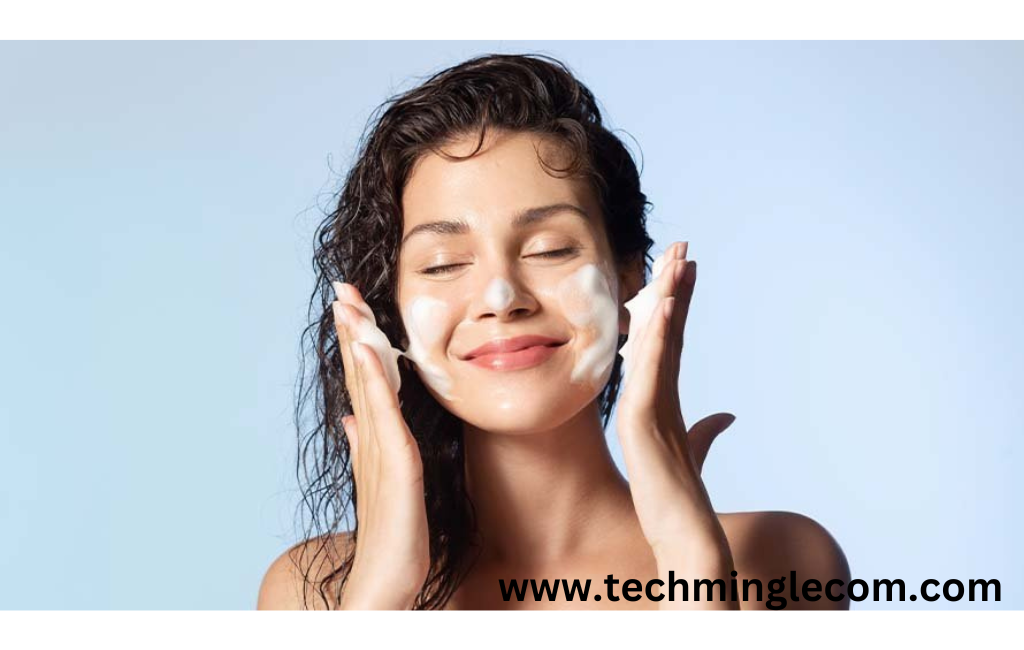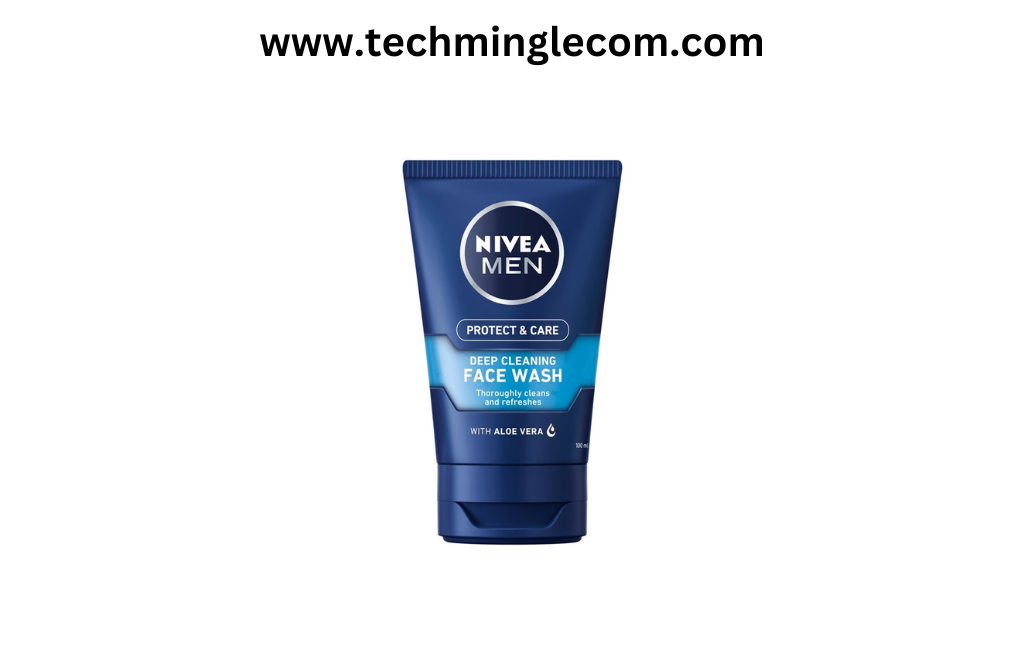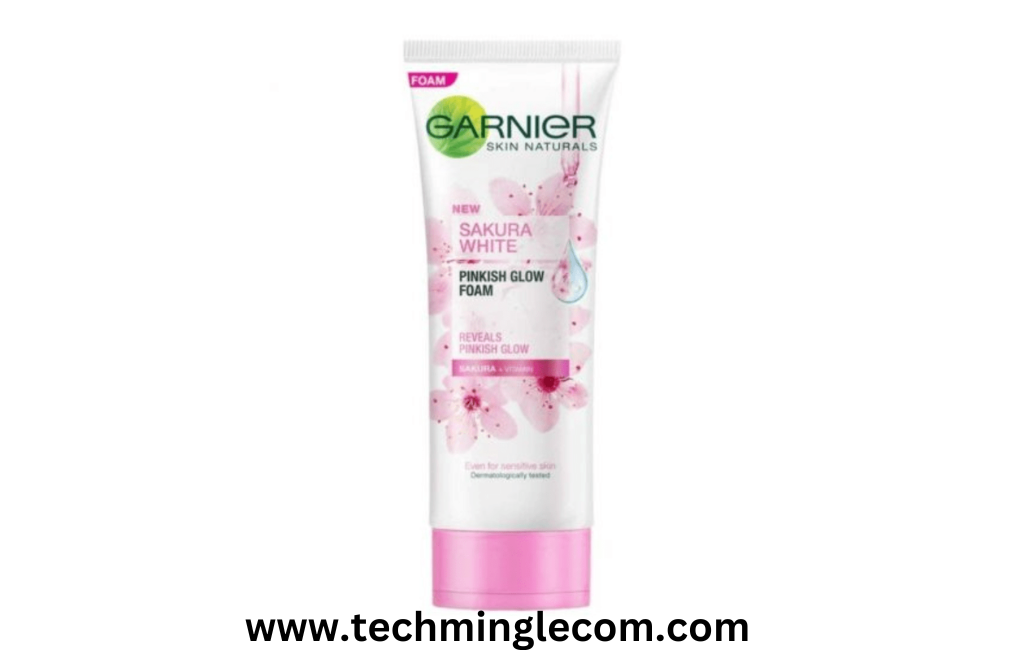
face wash:100% Natural Ingredients to Look for in Your Face Wash
Introduction to face wash
Keeping your face clean is more than just a daily habit; it’s a crucial part of maintaining healthy, glowing skin. Face washes, often considered the cornerstone of any skincare routine, play a significant role in removing dirt, oil, and impurities from your skin. In this guide, we’ll delve into everything you need to know about face washes, from choosing the right one for your skin type to incorporating it effectively into your routine.
What is Face Wash?

Definition and Purpose
A face wash is a skincare product designed to cleanse your face by removing dirt, sweat, makeup, and other impurities. Unlike regular soap, face washes are formulated specifically for the delicate skin on your face, ensuring a thorough cleanse without stripping away natural oils.
Types of Face Washes
When it comes to face washes, one size doesn’t fit all. Different formulas are designed to meet various skin needs and concerns. Here’s a rundown of the main types of face washes available and what they can do for your skin:
Gel-Based Face Washes
Overview:
Gel-based face- washes are light and have a transparent, gel-like texture.They are excellent for oily and acne-prone skin because they help to control excess oil and prevent breakouts.
Key Benefits:
Deep Cleansing: Gel face- washes commonly include ingredients like salicylic acid, which penetrate deep into pores to clear out dirt and oil.
Refreshing Feel: They leave the skin feeling clean and refreshed without a heavy residue.
Best For:
Oily Skin
Acne-Prone Skin
Cream-Based Face Washes

Overview:
Cream-based face- washes have a rich, creamy texture. They are typically more moisturizing than gel-based options and are designed to cleanse without stripping away natural oils.
Key Benefits:
Hydration: Cream-based face -washes often contain hydrating ingredients like glycerin or shea butter, which help to keep the skin moisturized.
Gentle Cleansing: They provide a more gentle cleanse, making them suitable for those with dry or sensitive skin.
Best For:
Dry Skin
Sensitive Skin
Foam-Based Face -Washes
Overview:
Foam-based face washes produce a lather that helps to lift and remove impurities from the skin. They start as a liquid or gel and transform into a foamy consistency when applied.
Key Benefits:
Effective Cleansing: The foam helps to break down and remove dirt, oil, and makeup more effectively.
Lightweight: Foam-based washes can be less heavy than cream-based options while still offering thorough cleansing.
Best For:
Normal to Combination Skin
Those who prefer a light, airy texture
Micellar Water
Overview:
Micellar water is a mild cleanser that uses micelles—tiny oil molecules suspended in water—to attract and remove dirt and makeup without requiring rinsing.
Key Benefits:
Convenient: It’s a no-rinse option that’s great for quick cleansing, especially for those with busy schedules.
Gentle: Suitable for all skin types, including sensitive skin, as it doesn’t require harsh scrubbing.
Best For:
All Skin Types
Those seeking a quick and easy cleansing option
Exfoliating Face- Washes
Overview:
Exfoliating face -washes contain small, gritty particles or chemical exfoliants (like alpha-hydroxy acids) that help to slough off dead skin cells and promote a smoother complexion.
Key Benefits:
Smoother Skin: Regular use helps to improve skin texture and brightness by removing dead skin cells.
Unclogs Pores: They help to clear out pores, which can reduce the likelihood of breakouts.
Best For:
Normal to Oily Skin
Those with dull or uneven skin texture
Oil-Based Face Washes

Overview:
Oil-based face -washes use oils to dissolve and remove makeup, sunscreen, and other impurities. They can be particularly effective for deep cleansing.
Key Benefits:
Effective Makeup Removal: Oil-based washes are excellent for breaking down stubborn makeup and sunscreen.
Moisturizing: They often leave the skin feeling soft and hydrated.
Best For:
Dry or Combination Skin
Those who wear heavy makeup
Sulfate-Free Face -Washes
Overview:
Sulfate-free face -washes do not contain sulfates, which are harsh cleansing agents that can strip the skin of its natural oils.
Key Benefits:
Gentle on Skin: They clean effectively without causing dryness or irritation.
Suitable for Sensitive Skin: Ideal for those with sensitive or reactive skin.
Best For:
Sensitive Skin
Those looking for a gentle, non-stripping cleanser
Choosing the Right Face -Wash
Understanding Skin Types
To select the best face- wash, you first need to identify your skin type:
Oily Skin: Look for a gel-based face -wash with ingredients like salicylic acid or tea tree oil that help control excess oil and prevent breakouts.
Dry Skin: Opt for a hydrating, cream-based face -wash with ingredients such as hyaluronic acid or glycerin to maintain moisture levels.
Combination Skin: Choose a balanced face -wash that can address both oily and dry areas without disrupting your skin’s natural
balance.
Sensitive Skin: Go for a gentle, fragrance-free face -wash with soothing ingredients like chamomile or aloe vera to prevent irritation.
Key Ingredients to Look For
Look for face- washes with ingredients that address your specific skin needs. Salicylic acid helps control oil for oily skin, while hyaluronic acid is excellent for hydrating dry skin.
Avoiding Harmful Ingredients
Stay away from face- washes with harsh chemicals, such as parabens and sulfates, which can strip your skin of its natural oils and lead to dryness or irritation.
Benefits of Using Face Wash

Deep Cleansing
A good face -wash removes impurities and unclogs pores, leading to a clearer complexion and reduced risk of breakouts.
Acne Prevention
Regular use of face -wash helps to prevent acne by keeping your pores clean and free from excess oil and bacteria.
Improved Skin Texture
Face -washes can help improve the texture of your skin by exfoliating dead skin cells and promoting a smoother surface.
Hydration and Moisture Balance
Some face -washes include moisturizing ingredients that help maintain your skin’s natural hydration balance, preventing it from becoming overly dry or oily.
How to Use Face Wash Effectively
Proper Application Techniques
Apply a small amount of face -wash to damp skin and gently massage it in circular motions.Rinse thoroughly with lukewarm water to remove all traces of the product.
Frequency of Use
For most people, using face- wash twice daily—morning and night—is ideal. However, if your skin is particularly dry or sensitive, you may need to adjust the frequency.
Tips for Best Results
Getting the most out of your face -wash involves more than just choosing the right product. Proper usage and incorporating good skincare habits are crucial for achieving optimal results. Here are some tips to help you get the best results from your face -wash:
Choose the Right Face Wash
Match to Skin Type: Make sure your face -wash is suited to your specific skin type (oily, dry, combination, or sensitive). Using the wrong type can lead to issues like excess dryness or breakouts.
Check Ingredients: Look for key ingredients that address your skin concerns, and avoid harmful components like sulfates and parabens.
Use Lukewarm Water
Temperature Matters: Use lukewarm water when applying and rinsing your face- wash. Hot water can strip your skin of natural oils, while cold water might not effectively dissolve impurities.
Apply the Right Amount
Use a Small Amount: You don’t need a lot of product to achieve a clean face. A pea-sized amount is usually sufficient for most face washes. Using too much can lead to unnecessary wastage and may over-dry your skin.
Massage Gently
Circular Motions: Apply the face -wash using gentle, circular motions. This helps to effectively cleanse your skin without causing irritation or overstretching.
Avoid Over-Scrubbing
Be Gentle: Don’t scrub too hard or use abrasive tools. Over-scrubbing can irritate your skin and exacerbate issues like redness and dryness.
Rinse Thoroughly
Remove All Residue: Ensure you rinse your face completely to remove all traces of the face -wash. Residual product can lead to clogged pores and may affect the effectiveness of other skincare products.
Pat Dry with a Clean Towel
Avoid Rubbing: After rinsing, gently pat your face dry with a clean, soft towel. Avoid rubbing your skin, which can cause irritation and redness.
Follow with a Toner
Enhance Cleansing: After cleansing, use a toner to remove any remaining impurities and help balance your skin’s pH levels. This can also help prep your skin for moisturizers or serums.
Moisturize Immediately
Lock in Moisture: Apply a moisturizer right after cleansing to lock in hydration and maintain your skin’s natural moisture balance.
Adjust Frequency Based on Skin Needs
Avoid Overuse: Generally, using face wash twice daily (morning and night) is ideal. However, if your skin is particularly sensitive or dry, you may need to adjust the frequency to prevent irritation.
Avoid Harsh Products
Gentle Formulas: If you have sensitive or dry skin, opt for gentle, fragrance-free face washes. Steer clear of products containing alcohol or strong fragrances, as they can lead to irritation.
Incorporate Exfoliation Wisely
Exfoliate Regularly: If you use an exfoliating face wash, don’t overdo it. 2-3 times a week is generally sufficient.Excessive exfoliation can harm the skin barrier and result in heightened sensitivity.
Be Consistent
Stick to a Routine: Consistency is key in any skincare routine. Make face washing a regular part of your daily regimen to maintain clean, healthy skin.
Monitor Your Skin’s Reaction
Adjust as Needed: Pay attention to how your skin responds to your face wash. If you notice increased dryness, irritation, or breakouts, consider switching products or adjusting your routine.
Store Properly
Keep It Clean: Store your face wash in a cool, dry place and ensure the cap is tightly closed to prevent contamination.
Popular Face Wash Brands
Features and Benefits
Brand 1 offers a wide range of face washes, including options for sensitive skin and acne-prone skin. Their products are known for their gentle formulas and effective results.
Features and Benefits
Brand 2 specializes in hydrating face washes with natural ingredients. Their products are ideal for those with dry or combination skin.
Features and Benefits
Brand 3 provides a selection of face washes with exfoliating properties. Their products are great for improving skin texture and preventing clogged pores.
DIY Face Wash Recipes
Simple Ingredients for Homemade Face Washes
Creating your own face wash at home can be a fun and cost-effective way to ensure you’re using natural ingredients. Common ingredients for DIY face washes include honey, aloe vera, and oatmeal.
Benefits of DIY Face Washes
DIY face washes can be customized to suit your skin type and preferences, and they often avoid synthetic chemicals found in commercial products.
Common Mistakes to Avoid
Overuse of Face Wash
Using face wash too frequently can lead to dryness and irritation. Over-exfoliating can weaken the skin barrier and increase sensitivity.
Using the Wrong Type for Your Skin
Using a face wash that doesn’t match your skin type can exacerbate issues like dryness or oiliness. Ensure your face wash is suited to your specific needs.
Neglecting Other Skincare Steps
Face wash is just one part of your skincare routine. Don’t forget to incorporate other essential products like toners and moisturizers.
Face Wash and Other Skincare Products
How Face Wash Fits into Your Skincare Routine
Face wash should be the first step in your skincare routine, followed by toners, serums, and moisturizers.
Complementary Products for Optimal Results
For the best results, pair your face wash with products that complement its effects, such as exfoliants and masks.
Conclusion
In summary, choosing the right face wash is essential for maintaining healthy, clear skin. By understanding your skin type and selecting a product with suitable ingredients, you can ensure your face wash effectively meets your needs. Remember, consistency is key in any skincare routine, so find a face wash that works for you and stick with it for the best results.
FAQs
What is the difference between face wash and facial cleanser?
Face wash is specifically formulated for facial skin, often addressing issues like acne or dryness, while facial cleansers can be more general and used for various purposes.
How often should I use face wash?
Typically, using face wash twice daily—morning and night—is recommended, but adjust based on your skin’s needs and sensitivity.
Can face -wash help with acne?
Yes, face -washes with ingredients like salicylic acid can help prevent and treat acne by keeping pores clean.
What should I do if my face- wash irritates my skin?
If irritation occurs, stop using the product and consider switching to a gentler formula suited for sensitive skin.
Are there any natural alternatives to commercial face -washes?
Yes, natural alternatives like honey, aloe vera, and oatmeal can be used to create effective DIY face -washes.


